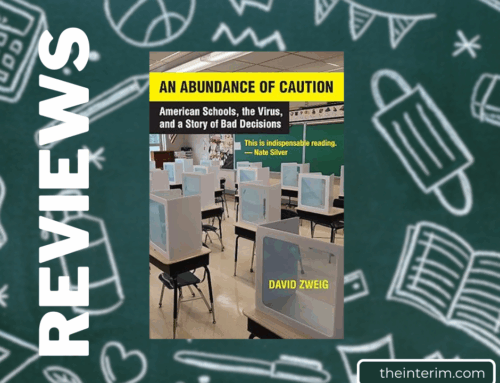There’s a scene at the beginning of the season finale of The Young Pope that sums up this controversial HBO series as much as any of a dozen or so startling scenes in the previous nine hours. The titular pontiff, played by Jude Law, has just been told by his director of publicity that he is scheduled to lead a group of schoolchildren on a tour of the Vatican museums.
The young Pope does not like children particularly; earlier in the series he had expressed a similar lack of enthusiasm for a group baptism. He suggests to his attractive PR person that the task is divine punishment for some atrocity he might have committed.
“Holy Father, you don’t want to disappoint the children, do you?” she pleads.
“Ma’am, it’s the children who’ve disappointed me,” he replies.
When The Young Pope was announced last year, there was no reason to believe that the show would be anything but a potboiler with an agenda, an upscale quality cable version of Dan Brown’s idiotic Da Vinci Code series. It has been a long time – virtually my whole life – since the movies were sympathetic to the papacy in particular or Catholics in general. Rumours spread that the show would particularly target conservative Catholics with its satire, in what looked like a televised polemic advocating for the liberalization of the Church, proclaiming its irrelevance or even its hoped-for abolition.
When the first episodes finally aired in Europe last fall, it played out very differently. We were introduced to Law’s newly-crowned Pius XIII as he crawled from beneath a pyramid of babies in the middle of St. Mark’s Square in Venice, and followed him as he delivered his first address to the faithful waiting in the rain outside St. Peter’s in Rome. After parting the clouds and beginning his address in bright sunshine, he launches into a proclamation for the wholesale liberation of the Church – every item on the list, from abortion to female priests to gay marriage, sending the clergy behind him scurrying into the shadows and leaving the faces of the crowd below dumbstruck.
It was an audacious feint by writer/director Paolo Sorrentino. As if the mountain of babies weren’t a tip-off, we quickly learned that this was a dream sequence, and that the handsome young Pope, formerly Cardinal Lenny Belardo, is actually an arch-conservative, whose program to put the Church into full liturgical and theological reverse past Vatican II was tipped off by his choice of name.
The cardinals who had elected an unknown, obscure American in the hopes of using him as a puppet for careful liberalization – led by Vatican Secretary of State Cardinal Voiello – were shocked at his sudden intransigence. But as the elderly cardinal passed over in favour of Belardo – his onetime mentor, Cardinal Spencer (James Cromwell) – points out angrily to Voiello, “the young are always more extreme than the old.”
After delaying his first papal address for most of the first two episodes, Law’s Pius finally emerges onto the balcony of St. Peter’s to greet the crowd at night. Backlit to hide his face, he tells them that his Church will be an austere one, unconcerned with outreach or ecumenicism. The faithful, he tells them, will have to work harder to get closer to God; the Church will no longer make accommodations to meet them halfway. After expressing his disappointment in them, he awkwardly ends his sermon and leaves; thunder and lightning split the sky and the clouds open, drenching the crowd with the same rain that began the first episode.
The first two episodes are so perfect that the story could have ended there, but there were still eight episodes to come. (A second season has been tentatively confirmed.) It quickly became clear that the show was a hit with young Catholics, and garnered praise from blogs like Patheos and the Catholic Herald in the UK; in the simmering confusion of the Francis papacy, conservative Catholics have embraced Pius XIII the same way that liberal Americans pledged their allegiance to The West Wing’s fictional President Bartlet during the George W. Bush administration.
In the middle of binge-watching the first season, I suggested to a friend (also raised a Catholic) that the prospective audience for The Young Pope was limited to devout Catholics, bitter ex-Catholics, and people who hate the Catholic Church. He said that this would still be a sizeable audience. Right on cue, New York magazine published a recap column devoted to the show called The Young Nope, with writer Dayna Evans expressing exactly the sort of fervent but clueless outsider criticism that one would expect from the third group, where Sorrentino’s TV pontiff is forced to bear the brunt of decades of real world liberal anti-Catholicism.
Even its fans expressed unease: First Things called the show “often boring and occasionally blasphemous,” though writer Matthew Schmitz admitted that “I confess that when I heard (Pius) say, ‘The Vatican must immediately buy back the papal tiara,’ I let out a whoop.” Pope Lenny is admittedly an odd papal surrogate for even the most conservative Catholic. He cultivates a coolness that often crosses over into rudeness, and a persistent misanthropy that moves him to frequent cruelty. He’s an ascetic who revels in the sumptuous trappings of the papacy, a vain man who speculates aloud that he might be more handsome than Jesus.
The Young Pope doesn’t make things easy for its audience, devout, bitter or angry. Obvious villains like Voiello are endowed with priestly compassion; good characters like Lenny’s boyhood friend Cardinal Dussolier graphically violate their vows of priestly celibacy. Most pointedly, Law’s Pius frequently admits that his faith is in crisis; despite working miracles and delivering a season finale sermon that would renew any real world papacy, he confesses that he doesn’t believe in God.
This is all set in a conspicuous Italian surrealism that takes giddy advantage of the Vatican City setting. Sorrentino revels in striking visual tableaux and loving camera pans over both the beautiful and the grotesque. You can never predict where the show will go next. At one crucial point Lenny’s apartments are filled with the ghosts of a host of long-dead popes. There is a Papal Kangaroo.
I’m sure many readers will be scandalized by The Young Pope, but I can’t think of another movie or TV show in decades that wears its fascination with the unprecedented and fascinating strangeness of the papacy so eagerly, or allows characters to debate topics like abortion, clerical abuse, celibacy and sexuality without trying to deliver an agenda. I can’t think of another faith – Christian, protestant, Abrahamic or pagan – where these questions need to be debated so regularly, and in flagrant violation of an increasingly censorious political or cultural climate, hell-bent on enforcing consensus.
When Voiello pronounces that “the Church is female,” it lands like a ticking bomb in the middle of the series; it’s just one such line in the series that dares us to contemplate an idea, to debate it, to ponder, to disagree, to become engaged with the whole messy, maddening, difficult business of being a Catholic. Catholics have been given a history and a theology that’s glorious, frightening and confusing. It’s both absurd and appropriate that a TV show was needed to remind us of this great gift.





